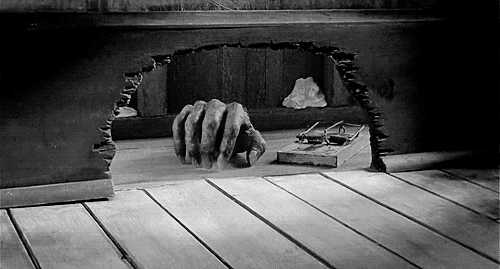Biografía sacada de la web de La Comunne
Peter Watkins was born in Norbiton, Surrey, England in 1935. He studied theatre at the Royal Academy of Dramatic Art in London, and did his compulsory military service with the East Surrey Regiment. He has been married twice and has two sons from his first marriage. Patrick and Gérard live with their mother in Paris. Peter and his second wife live in Vilnius, Lithuania.
In the late 1950s, Peter Watkins worked as an assistant director on short films and advertising spots for an advertising agency in London. He made four amateur films; the last one, The Forgotten Faces, a portrait of the Hungarian Revolution of 1956, already contains many elements of his signature style. In it, he successfully breaks two deep-rooted cinematic conventions – the pretences that actors do not see the camera and that an invisible observer always knows what is going to happen next so that the camera is always pointing in the right direction, correctly focused and framing the picture nicely.
Peter Watkins joined the BBC, where he advanced his techniques of realistic reconstruction – notably through the use of amateur actors, intensive cross-cutting and a distinctive way of conducting interviews – in Culloden and The War Game. The latter film, which describes the devastating effects of a possible nuclear strike on Britain, was banned by the BBC, although it went on to win the Oscar for best documentary in 1966. Following the controversy regarding The War Game and its suppression in response to direct pressure from the British government, Watkins’ filmmaking career turned stormy. It became increasingly difficult for him to find work, and his films often met with underhanded attacks or widespread indifference.
Despite this, he has managed to produce many remarkable and rigorous films, often with no assistance from national film or television agencies. Edvard Munch and The War Game remain his best known works to date. Living in exile, Peter Watkins goes from continent to continent, country to country, wherever he has an opportunity to continue making his films and promoting his unique view of cinema.
Documentales y entrevistas
| The Universal Clock - The Resistance of Peter Watkins | 2001 | 76' | |
| Directed by Geoff Bowie Production Agency National Film Board of Canada | |||
| Lithuania 2001 | 2001 | 30' | |
This "interview" - Watkins "alone" in front of a camera - is a bonus feature on the French DVD edition of "La Commune". Hard to find. In a pro-Soviet era theme park outside of Vilnius, Lithuania, two years after the making of "La Commune", Watkins reflects on this unique experience, speaking about his work, the genesis of film, his role as director, and more generally on the contemporary crisis of mass-media. A passionate attack on globalisation and the lamnetable state of the television and film industry, it's reminiscent of Dennis Potter's magnificent McTaggart Lecture... | |||
FILMOGRAFÍA
1956 The Web
1958 The Field of Red
1959 The Diary of an Unknown Soldier
1961 The Forgotten Faces
1964 Culloden
1965 The War Game
1967 Privilege
1969 Gladiatorerna
1971 Punishment Park
1974 Edvard Munch
1975 70'ernes folk
1975 Fällan
1977 Aftenlandet
1987 Resan
1991 The Media Project
1994 Fritänkaren
2000 La commune (Paris, 1871)
| The Web | 1956 | 20' | ||
| The Field of Red | 1958 | ' | ||
IMDB | ||||








